Register for free and continue reading
Join our growing army of changemakers and get unlimited access to our premium content

Certain pieces of everyday technology remain seemingly unchanged from generation to generation. But our innovations this month include changes to two iconic pieces of hardware: the flushing toilet and the aluminium can.
Around 3.5 billion people around the world lack access to safely managed sanitation services, of which flushing toilets are the lynchpin. The challenge is that today’s toilets require infrastructure like sewer systems that are not available in many areas. Our first innovation is an electric-powered, infrastructure-independent toilet that is on the cusp of commercialisation.
Toilets may be key for public health, but a lot of water is spent on flushing. Our second innovation is therefore reducing the number of times people flush, by offering them fizzy tablets that mask the smell and colour of urine.
Largely unchanged since the 1980s, drinks cans are another design classic. However, the fact that they can’t be resealed once cracked has limited their use to a narrow range of applications. This is all set to change, however, with our third monthly innovation – an all-metal can that can be resealed time and again.
Beyond design, certain materials have also become a familiar part of our daily lives, and polypropylene is among the most common. Our fourth innovation is a carbon-negative, material made from coffee grounds, that is replacing the ubiquitous plastic in a range of applications.
On the outside of homes, solar panels are becoming an increasingly common sight, although many still prefer the aesthetics of the traditional roof tile. Our penultimate innovation this month is an ‘invisible’ solar tile that removes the need to choose between style and sustainability.
Finally, the hum of jet engines is another feature of modern life. The rise of electric aviation, however, could one-day spell the end for that now-familiar drone. Our last innovation is bringing electric aviation closer with a new magnetic material that could slash the weight of electric motors.
A SEWER-FREE TOILET BRINGS SANITATION TO OFF-GRID COMMUNITIES
Toilets may not be the most glamourous part of our homes, but they are an essential piece of hardware that many people around the world still lack. In fact, according to Water Aid, if everyone on earth had access to a decent toilet, the net benefit generated could be as much as $86bn.
Today’s toilets, however, rely on infrastructure like sewer systems, cesspools, septic tanks, or latrine pits to dispose of waste. This infrastructure is not available everywhere, so a consortium led by Georgia Tech has been working to create an infrastructure-independent toilet. Called the Generation 2 Reinvented Toilet – or ‘G2RT’ – this solution comes with a self-contained processing unit that treats waste at source. Liquid waste is recycled for flushing after being purified, while solid waste is converted to safe and compostable dry solids by being exposed to high heat and pressure.
The G2RT, which runs on electricity and requires no input water, will improve public health by preventing the contamination of waterways with harmful pathogens. Beyond this, the new appliance offers significant construction and installation cost savings as it does not require extensive infrastructure development. As a result, it can be affordably deployed in communities that do not have access to sewers.
LIXIL, a Japanese maker of pioneering water and housing products, has obtained a licence for the G2RT and will drive its commercialisation.
FIZZ DON’T FLUSH: TABLETS THAT REDUCE TOILET FLUSHING
Water is a precious commodity, with almost two-thirds of the world’s population experiencing extreme water scarcity at least one month per year. Yet, every day, we flush vast quantities of it down the toilet. In fact, Belfast-based startup Wizso highlights that around one-third of the 145 litres of water used daily by the typical British person goes to toilet flushing.
To save water, Wizso therefore hopes to persuade people to flush the toilet less. Its solution is a type of fizzy tablet similar in chemistry to those that have been used for years in applications such as water-dissolved medications – Berocca, for instance. Consisting of an acid and an alkali, the 100% soluble and non-harmful tablets mask the smell of urine and change the colour of the toilet water to something recognisably clean. This, the startup hopes, will provide an acceptable alternative to flushing when people visit the toilet to urinate only. Flushing less, in turn, leads to significant water and financial savings.
To refine the product, and assess its potential for driving behavioural change, Wizso decided it made sense to work with the big water companies from early on. Trials with companies such as Northumbrian Water, Southern Water, and Affinity Water, have yielded promising results and led to improvements, such as the removal of unnecessary foil packaging and a refinement to the way that the tablets are dispensed.
Key to the success of Wizso will be whether consumers are willing to make the change – and the signs are very promising. In the Southern Water trial, which involved a cohort of the water company’s staff, the tablets were found to reduce flushing by around 30%, with reductions of closer to 40% in the second half of the trial. The much larger Affinity Water trial, which gathered survey responses from around 800 families who had been given Wizso, also showed a positive response.
Photo source Canovation
A REVOLUTIONARY, SUSTAINABLE DESIGN FOR THE HUMBLE CAN
Aluminium cans have not changed much since the development of the ‘stay-on tab’ in the early 1980s. While cans are a convenient packaging option for many products, their lack of resealability has limited their use and often meant that food and drink go to waste if not consumed in one go. That may be about to change, however.
Startup Canovation has developed a new can design, called CanReseal, that allows all-metal cans to be resealed after opening, leading to less wasted food. The company states that CanReseal integrates easily into existing seaming and filling manufacturing and supply chain networks, and can be manufactured at a comparable cost to other types of cans.
The design adds threading to the top of the can, and this allows a metal closure to be screwed into the top of the can to create an air and liquid-tight seal. In doing so, the design also increases the product offerings that can be packaged in cans. For example, the resealability could allow cans to be turned into cups or bowls for additional convenience and enable end users to repurpose cans as reusable containers.
Canovation envisions the cans being used for products beyond beverages such as pet food, paint, household supplies, personal care items, and many others. In the immediate future, the company plans to launch a food container option in 2025, with an innovative beverage packaging solution planned for the following year.
Photo source AirX
TURNING COFFEE INTO VERSATILE, CLIMATE-FRIENDLY MATERIALS
The global market for polypropylene, the world’s second most used plastic, is expected to grow at an annual rate of 3.5% between 2022 and 2030 to reach almost $160 billion. What that means for the environment is more manufacturing-related emissions and plastic pollution.
Creating a material that could replace plastic across various applications but with fewer emissions is a challenge that startups worldwide are trying to solve – and one of those innovators is AirX. The Vietnamese materials technology company has created a biodegradable, recyclable version of polypropylene that directly replaces the fossil-fuel-produced version. The new material is carbon-negative and uses coffee grounds as biological feedstock. By upcycling a waste product rather than using purpose-grown crops, such as corn or sugarcane, the company eliminates additional pressures on arable land.
Because polypropylene is used in so many industries, including textiles, automotive, packaging, and healthcare, a direct replacement for the base material has the potential to further decarbonisation efforts as well as reduce demand for virgin and petroleum-based materials. Every kilogramme of AirX’s plant-based polypropylene alternative removes up to 0.84 kilogrammes of carbon dioxide from the air over its lifetime, and the company’s collection and logistics processes minimise emissions at every opportunity.
AirX also produces other bio-composites made from recycled plastic and a range of biodegradable feedstocks, including sugarcane bagasse, coconut shells, and bamboo. All the products have a net-zero carbon footprint, which the company monitors via Life Cycle Assessments.
Photo source Volt
RE-ROOFING HOMES WITH STYLISH, HIGH-POWER SOLAR TILES
One way nations can contribute to the world’s goal of tripling global renewable energy capacity by 2030 is to integrate generation into more locations. Increasing the aesthetics and versatility of renewable energy systems helps accomplish that, and integrated solar roof tiles from Australian company Volt are an efficient, high-power option.
The tiles are inconspicuous and larger and lighter than traditionally sized tiles. Because of this reduced weight, fewer building materials are required in a home’s construction to support the tiled roof, helping to reduce construction emissions. Volt’s tiles are also 100% recyclable and the company includes an end-of-life plan for each installation.
The solar cells and conductive layer lie beneath tempered glass that has an anti-glare coating, and the aluminium frame contains the company’s patent-pending interlocking mechanism that connects the panels to each other and the roof tiles. To make integration smooth and provide customers with attractive roof designs, Volt partners with Australian manufacturer of premium concrete and terracotta roof tiles Bristile Roofing and La Escandella, which is a Spain-based manufacturer of ceramic products.
The tiles are available in two different styles and a variety of colours. The Planum range produces up to 115 watts of energy and works at 18.8% efficiency. The Lodge line of tiles is slightly more efficient, at 19.5%, and produces up to 105 watts of energy. Installed by certified professionals, the tiles can be used both in new builds and re-roofing projects.
Photo source Kite Magnetics
LIGHTER MOTORS BRING US ONE STEP CLOSER TO ELECTRIC PLANES
On the whole, international travel is nearly back to where it was before the pandemic, which means that aviation industry emissions have climbed back up too, reaching nearly 800 metric tonnes of CO2 in 2022, or 80% of pre-Covid levels.
Australian company Kite Magnetics is working with a newly developed magnetic material with the anticipation of making a ground-breaking achievement in aviation by the decade’s end. The startup aims to slash the size and weight of electric motors by half, revolutionising the aviation sector’s pursuit of decarbonisation.
The material, called Aeroperm, is the world’s highest flux density nanocrystalline. Think of it as a kitchen-foil lookalike that’s made mostly from iron, yielding a super strong magnetic field. Using this technology combined with advanced manufacturing methods, Kite Magnetics can create a high-performance electric motor that’s efficient and reliable, as well as light, quiet, and cheap.
Reducing the weight of components is a key goal for all types of aviation, but particularly the electric variety as the added weight of batteries is a key barrier to electrification. Aeroperm’s ability to reduce the weight of electric motors without compromising on performance is therefore particularly exciting.
Springwise is the global innovation platform for leaders looking to drive positive and sustainable change. The Springwise Innovation Library contains nearly 14,000 inspiring solutions to the world’s biggest problems. To access them, find a membership that’s right for you.
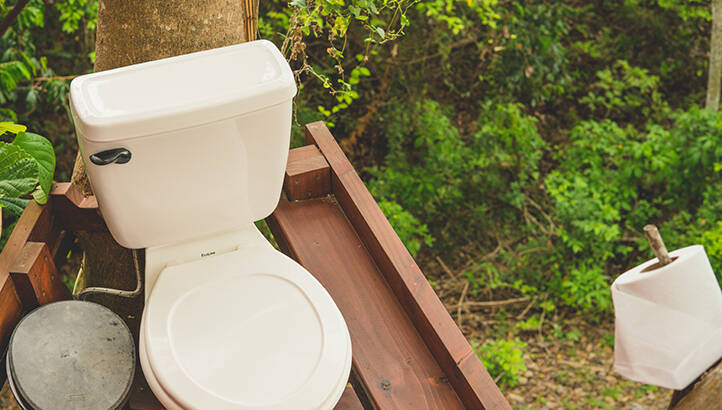
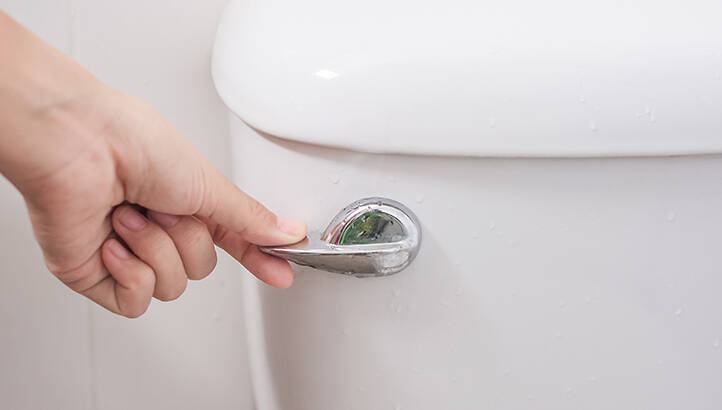
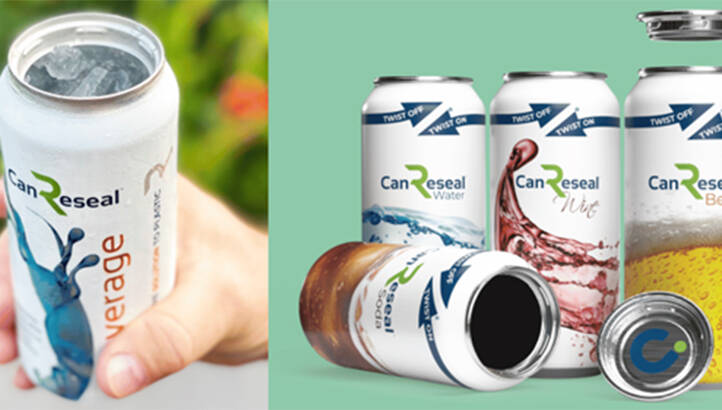
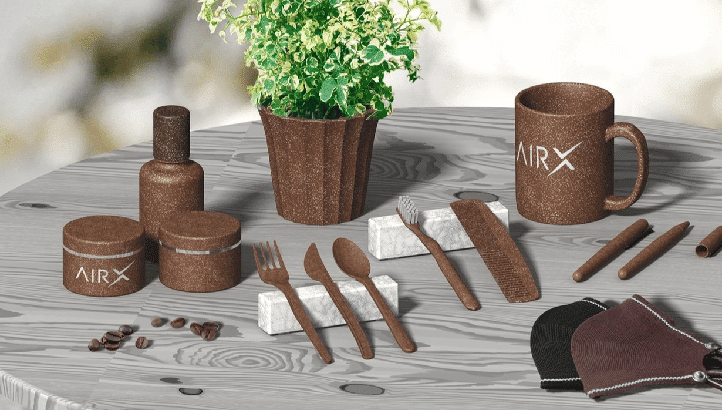
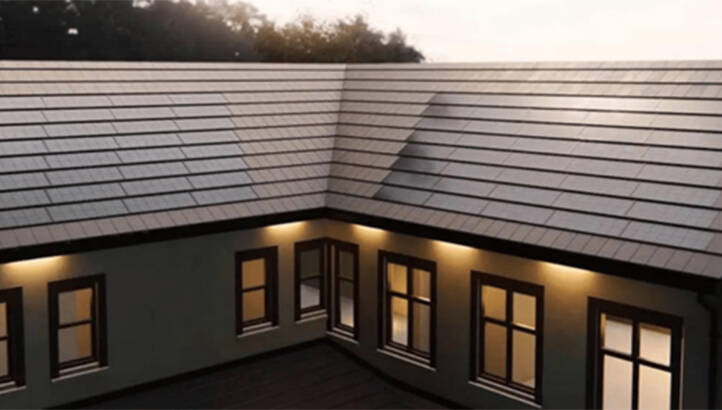
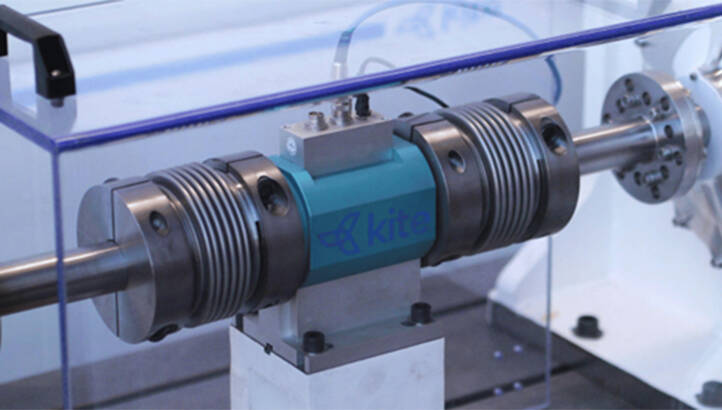


Please login or Register to leave a comment.